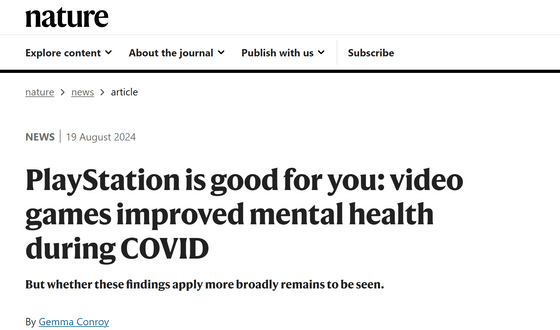Japanese study finds that gaming has a positive effect on mental well-being

PlayStation is good for you: video games improved mental health during COVID
https://www.nature.com/articles/d41586-024-02643-8

The experiment took place during the height of the COVID-19 pandemic, from December 2020 to March 2022. During this period, Nintendo Switch and PlayStation 5 were in short supply, and consumers had to enter a lottery to win the right to purchase them.
Egami took note of the lottery system and saw it as an opportunity to conduct a natural experiment on games and mental health, and conducted five questionnaire surveys of 8,192 people aged between 10 and 69 who applied for the lottery.
The survey collected data on psychological distress and life satisfaction, as well as game ownership and how much video games people played in the past 30 days. Those who won the lottery to purchase a Nintendo Switch or PlayStation 5 reported less psychological distress and more life satisfaction than those who lost the lottery and were unable to purchase one.

In the case of the PlayStation 5, the impact of the game console was particularly noticeable among 'men,' 'hardcore gamers,' and 'households without children.' On the other hand, in the case of the Nintendo Switch, the impact was greater among 'families' and 'inexperienced gamers.'
On both consoles, playing games increased participants' life satisfaction, and increased play time was associated with further improvements in mental health, although the positive effects faded for players who played more than three hours a day, suggesting that longer games don't necessarily lead to continued improvements in mental health.
'This study provides an example that games researchers around the world should carefully follow,' said Andrew Przybylski, a psychologist at the University of Oxford who studies the effects of video games. 'But when the experiment was conducted during a pandemic, people's overall mental health may have been poorer and they had fewer opportunities to engage in other activities, so the mental health benefits of gaming may have been amplified.'
'The next step is to replicate the study and see if the results hold up in non-pandemic periods,' Egami said.
Related Posts:
in Note, Posted by log1d_ts







